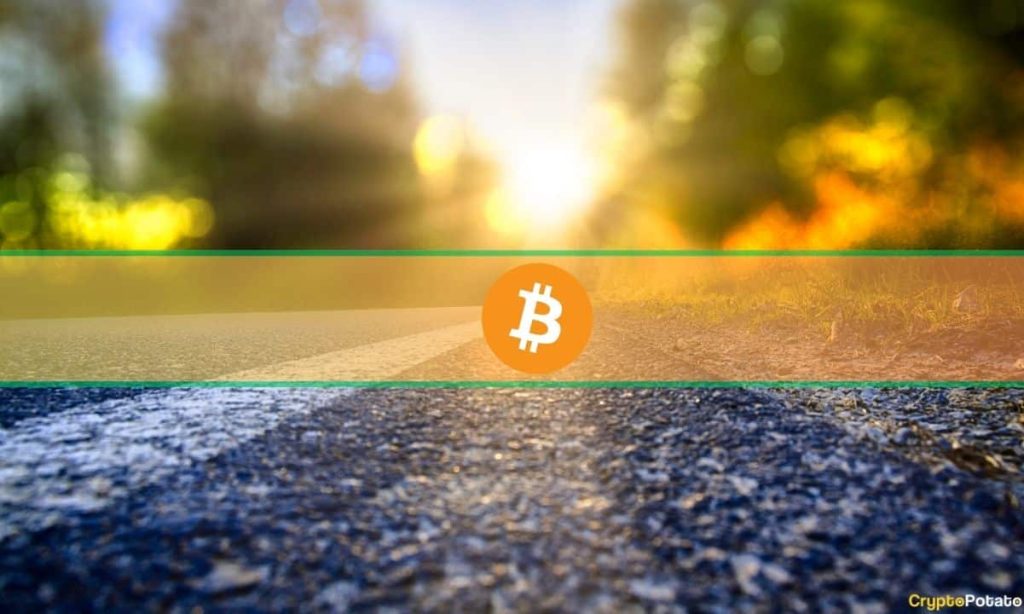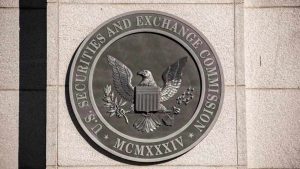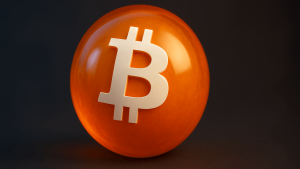ChatGPT Predicts 8 Things That Will Happen to Crypto By 2033

Although it all started with the inception of the Bitcoin network in 2009, the cryptocurrency industry as a whole was created roughly a decade ago. While there’re certainly more things that happened within that timeframe that we can explain here, it’s also worth visualizing and speculating on what could transpire within the next ten years.
As such, we asked the highly popular artificial intelligence chatbot – ChatGPT – about its take on the matter, and it provided some compelling scenarios on what could happen in crypto within the next decade.
1. Greater Mainstream Adoption
First things first, ChatGPT outlined a “greater mainstream adoption” coming within that timeframe as it envisions BTC and the altcoins becoming a substantial part of the global financial network and being used for transactions.
We have certainly seen developments on this front in the past few years. Two of the giants in the field – Visa and Mastercard – have both signed multiple partnerships with cryptocurrency firms to allow their millions of merchants to accept payments via digital assets through their credit and debit cards.
Despite the setbacks in the industry last year, Visa’s crypto head recently doubled down on his company’s positive views on the matter as they believe certain digital assets “have the potential to play an important role in the payments ecosystem.”
Mastercard, on the other hand, introduced a designated program recently aimed at helping banks launch cryptocurrency trading platforms.
2. Advanced Regulatory Frameworks
As adoption rises, the AI chatbot predicted that global watchdogs will want to keep a closer eye on the industry’s development. This has been a hot topic in the past few years, especially after the aforementioned “setbacks” from last year – meaning the collapse of Terra, FTX, and the subsequent contagion.
The United States has been at the forefront, albeit not in a very positive light. Despite being home to some of the largest crypto companies, the local regulators have failed to establish proper rules.
At the same time, the Securities and Exchange Commission has gone after multiple firms, alleging them of offering unregistered securities without detailing which digital assets are indeed securities. The regulator is also involved in legal battles against several crypto giants, including Ripple and Grayscale.
In contrast, Singapore, Hong Kong, as well as the European Union are making steps toward regulating the industry. The EU recently approved the MiCA legislation, which is expected to start operating in 2024 for stablecoins and in 2025 for exchanges and other industry participants.
3. Increased Institutional Investment
We saw a glimpse of institutions entering the space a few years ago, right after the COVID-19 outbreak. On one side, numerous prominent legacy investors, such as Ben Miller, Stan Druckenmiller, and Paul Tudor Jones III, outlined their support for bitcoin and some altcoins while bashing other investment options and the Fed’s monetary policy.
On the other, institutional investment vehicles, such as the giant insurance company MassMutual, One River Asset Manager, and even BlackRock (the world’s largest asset manager), dipped their toes with certain investments or direct BTC purchases.
This even led the once-doubtful banking behemoth JPMorgan to predict that other institutions could follow suit at some point. However, this all changed last year – yes, you guessed it – after the meltdown that started with Terra and continued with FTX.
ChatGPT, though, believes there’s a big chance the tide will turn again, especially if the previous two predictions come to life.
4/5 – Financial Services Interaction and Blockchain Adoption
We will combine these two, given their nature and the resemblance with the first point in this list. ChatGPT asserted that aside from credit and debit card usage, cryptocurrencies, as well as blockchain tech, could be successfully integrated into other parts of the financial system.
This includes settling large transactions on a bigger scale on blockchain networks but also incorporating insurance policies and real estate deals on top of this tech.
However, finance is just one of the areas that could start adopting blockchain more and more, according to the AI chatbot. It believes the tech could be used in several other fields, such as supply chain management, healthcare, and even government services.
6. Sustainability
Environmental, social, and governance (ESG) investing was the word in town a few years back, when there were a few global agencies posting frequent reports that bitcoin mining is bad for the environment. They did the trick as several investors, including Elon Musk’s Tesla, backed out from the BTC positions and pressured miners to stop using coal fuels and turned to more sustainable and green energy sources.
This is also one of the reasons Ethereum completed The Merge last year – a development that allowed the second-largest blockchain to move from the more energy-demanding proof of work to proof of stake.
ChatGPT sees sustainability playing a big role in the industry in the next decade as environmental concerns continue to grow. As such, the chatbot predicted that cryptocurrencies using more green energy will be the preferred choice for ESG (and other) investors.
7. DeFi Expansion
Decentralized finance is viewed as the counterparty of the general financial system the world operates under today, which is entirely centralized. This means there’s always a third party involved with all of your transactions, deals, etc.
Although DeFi has been around for years, it exploded in popularity in 2020. Dubbed “DeFi summer,” projects from this niche skyrocketed in engagement, total value locked (TVL), and prices.
However, this massive and rapid adoption also exposed some of the industry’s issues, such as lack of scalability, the existence of blatant scams, fraudulent projects, and rug pulls, as well as security problems. There’re billions worth of crypto lost due to rug pulls or hacks in the past few years.
Nevertheless, ChatGPT believes DeFi will outlive its issues, improve the user experience, and become a vital part of the financial industry.
8. New Technological Innovations
Last but not least, the AI chatbot mentioned innovations in the tech sector. After all, the Bitcoin network, as well as many other projects that emerged in the following 15 years, is an innovation in itself.
Proof of work, despite its issues, led to the creation of proof of stake and its multiple variations. So far, we have seen that blockchain allows the development of numerous and various protocols with different purposes, such as DeFi, NFTs, oracles, etc.
The next ten years could bring a lot more utilization for ideas that we have not even thought of yet.
“New cryptocurrencies may emerge with features and uses that we can’t currently anticipate. These could be driven by advances in technology or changing needs and conditions in society.”
Interestingly, though, the AI chatbot failed to mention non-fungible tokens (NFTs) despite their explosive growth in adoption in 2021. The question remains of whether ChatGPT doesn’t relate them to crypto or it just doesn’t see a future for them.
Binance Free $100 (Exclusive): Use this link to register and receive $100 free and 10% off fees on Binance Futures first month (terms).
PrimeXBT Special Offer: Use this link to register & enter CRYPTOPOTATO50 code to receive up to $7,000 on your deposits.













